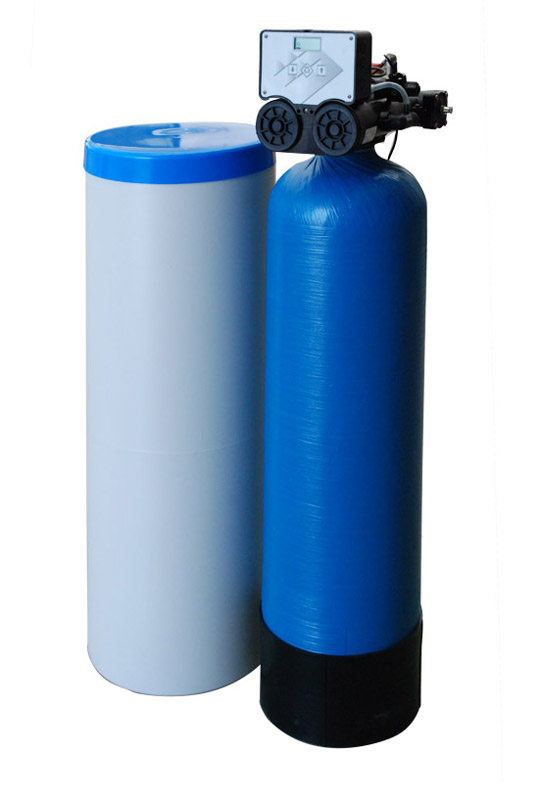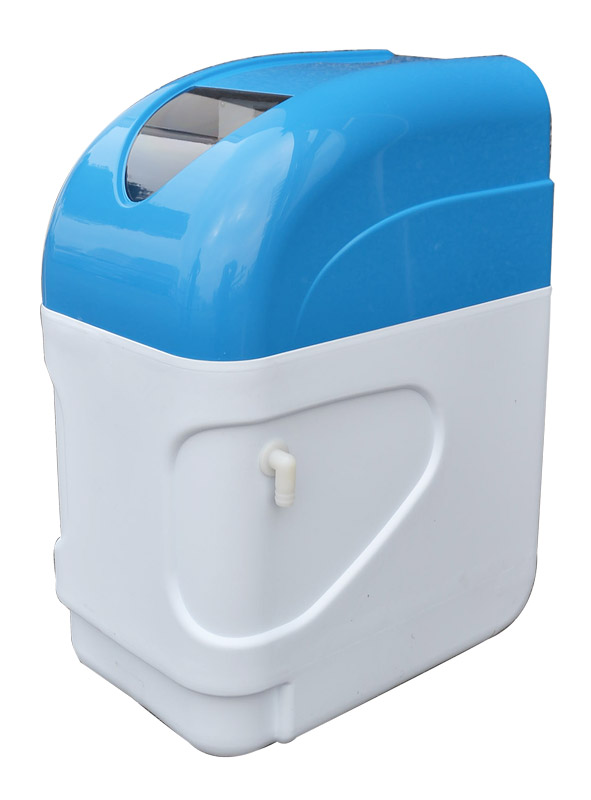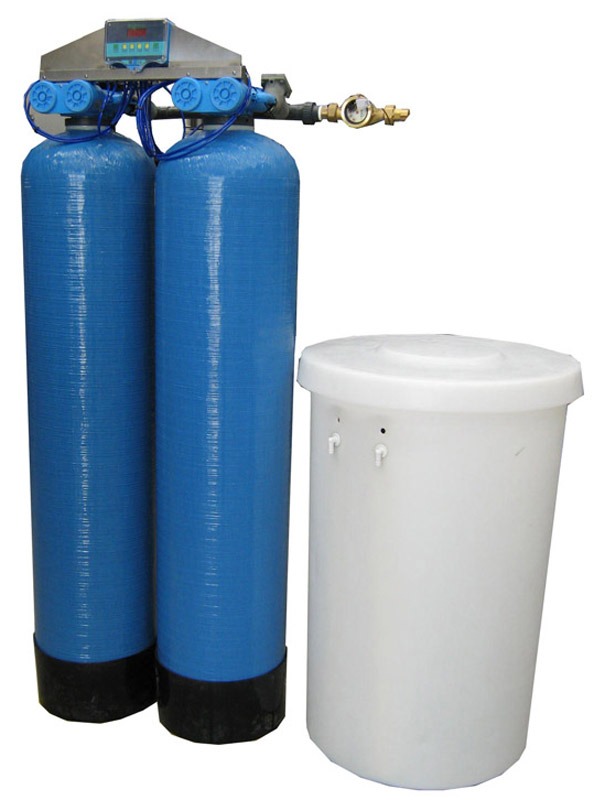The water we use normally contains chemical elements, such as calcium and magnesium, which determine water HARDNESS, and over time generate SCALE in the hydraulic circuits. This issue can be overcome using a softening system which performs ion exchange, detaining calcium and magnesium salts, and releases sodium salts into the water. Softened water ensures a clean hydraulic circuit, preserving the original functional features of the system.


Civil Softeners
The salts which determine hardness usually are present in the water and they are soluble. Yet, due to heating or evaporation, they tend to precipitate forming scale or other types of deposits. In home appliances, such as washing machines, dishwashers, boilers, etc., the scale tends to deposit on the electric resistances which heat the water; this leads to an increased energy consumption, which may exceed even 35-40%, and this leads to a gradual failure of the system. Hard water has a negative influence as well in cleaning processes: in fact the molecules of the detergent mix with calcium ions creating non soluble mixes which increase the amount of detergent required and deposit of fabric fibers which matt.
Customization ed integrations
The standard products can be customized and integrated in other systems, even existing ones. Specific customizations can meet specific customer requirements.



ABOVE:
Image of water softeners type cabs in one body, container resins and salt container.
Softeners for drinking water
Addolcitori per uso potabile conformi al D.M. 25
An automatic softening system is based on three main components: the tank containing the resins, the salt container and the valve system to regenerate the resins at the end of their operating cycle. The valve system can be of two types: single block, typical of small and medium size softeners for civil and industrial use, and single valve, a more complex and advanced system.
Single block valves can operate based on time, performing regeneration at preset time intervals, or based on time and volume, enabling to program a maximum volume and time interval to perform the regeneration of the resins.
How Does A Water Softener Works
The main task of a softener is to to remove the salts of calcium and magnesium from the water which contains them and replace them with sodium salts. This exchange allows you to make the water less encrusting given that sodium does not create deposits as calcium and magnesium. The cold water that comes in our home tap is itself not scaling, but just a few degrees of temperature in more to precipitate the salts of calcium and magnesium. The exchange of these salts takes place by means of resins that are able to retain the calcium and magnesium and drop them to the sodium. Once the resins are saturated with the water softener makes the regeneration of sodium chloride (the classic kitchen salt “NaCl”) holding the sodium (Na “) and releasing calcium and magnesium (Ca and Mg). This operation is generally performed at night when the water consumption is reduced and only after that the resins are saturated and no longer allow to retain the so-called hardness.
Important Notes: Water softeners do not remove the salt water but only replace them, the hardness in output is generally adjusted to about 15 ° F, the water is safe to drink as it was the first of the smoothing, the sodium in the water increases proportionally with the increase of the lowering of hardness.
Have A Water Softener
- The water softener protects the pipes, taps, boilers, dishwashers, washing machines, etc.. from the damage caused by limescale
- The softener allows a saving of up to 40% detergents
- Crockery, glass, ceramics and glass with no stains or opaque veils
- Hair softer and fluffier
- Substantial savings of electricity for non-fouling appliances
- Energy consumption is almost absent
- Minimal consumption of water for the regeneration
- Salt consumption for regeneration
- The monthly cost of a water softener for a family of 3/4 people is about 5/6 € for the consumption of salt and water
- The need for a small space for installation



